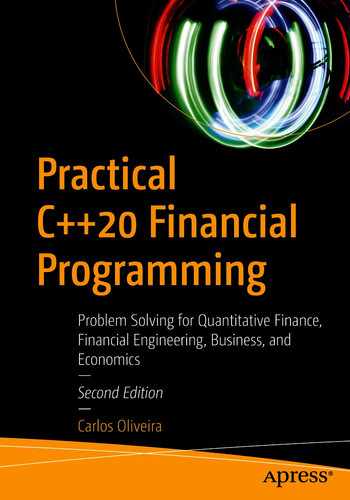Apply C++ to programming problems in the financial industry using this hands-on book, updated for C++20. It explains those aspects of the language that are more frequently used in writing financial software, including the Standard Template Library (STL), templates, and various numerical libraries. Practical C++20 Financial Programming also describes many of the important problems in financial engineering that are part of the day-to-day work of financial programmers in large investment banks and hedge funds. The author has extensive experience in the New York City financial industry that is now distilled into this handy guide. Focus is on providing working solutions for common programming problems. Examples are plentiful and provide value in the form of ready-to-use solutions that you can immediately apply in your day-to-day work. You’ll see examples of matrix manipulations, curve fitting, histogram generation, numerical integration, and differential equation analysis, and you’ll learn how all these techniques can be applied to some of the most common areas of financial software development.
What You Will Learn Who This Book Is For Those who are new to programming for financial applications using C++, but should have some previous experience with C++.
Table of Contents
- Cover
- Front Matter
- 1. The Fixed Income Market
- 2. The Equities Market
- 3. C++ Programming Techniques in Finance
- 4. Common Libraries for Financial Applications
- 5. Designing Numerical Classes
- 6. Plotting Financial Data
- 7. Linear Algebra
- 8. Interpolation
- 9. Calculating Roots of Equations
- 10. Numerical Integration
- 11. Solving ODEs and PDEs
- 12. Optimization
- 13. Asset and Portfolio Optimization
- 14. Monte Carlo Methods
- 15. Extending Financial Libraries
- 16. Using C++ with R and Maxima
- 17. Multithreading
- Back Matter
